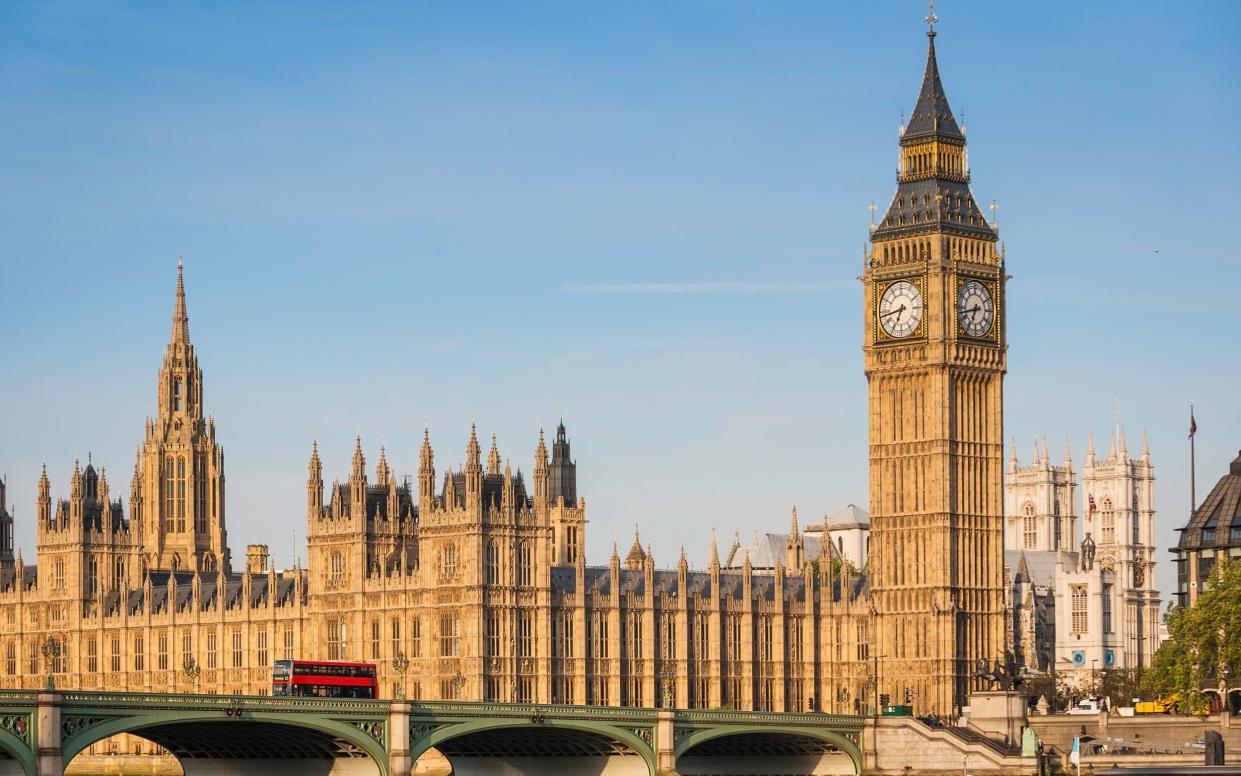Britain must cast off the shackles of Blairite regulation

Most people will be able cite an example of a “woke” failure or wrongdoing that has nonetheless been allowed to thrive.
There’s the uncontrolled legal and illegal immigration, the “two tier” policing and trans indoctrination. Teachers have displayed bias in the classroom, regulators have acted in their own self-interest. We’ve been ruled by lawyers, not the law.
Extreme progressive views are infecting our society and being treated as majority opinions. People feel they cannot say what they think any more. Our elected representatives in Parliament have been undermined by unaccountable bureaucrats.
To find an answer to Parliament’s inertia, we might benefit from a better understanding of our unwritten constitution. It’s not complicated, but is not generally discussed or frequently alluded to like the US written constitution. The Bill of Rights of 1689 has arguably been undermined by stealth, with crucial freedoms gradually removed.
Perhaps British voters need to be reminded that our tripartite constitutional structure consists of three “estates”: the people/electorate, Parliament and the Monarchy. British history, since the Glorious Revolution of 1688 when Parliament invited William of Orange to become a constitutional monarch, has shown that it is more politically resilient than bipartite republics. It is something that evolves and we should be very proud and protective of it.
Ours is a constitutional monarchy where the Monarch is the titular head but not the executive. Within Parliament the executive is drawn from the elected Commons, wielding sovereign power, with the continuity and guidance of the Lords. We all need to comprehend the essential value of free speech within Parliament and the country as a whole, whilst recognising and celebrating that tensions between the three and within Parliament itself are necessary for our country to function well.
Our “unwritten constitution” evolves by relying on sound legislation from Acts of Parliament written by new and successive Parliaments, which is why we don’t need amendments to a written constitution like the US. Some believe that a written constitution is superior, but I believe that an unwritten constitution is more flexible and progresses better as long as it is not intentionally undermined.
Any new legislation that places or has placed sovereign power in any hands outside Parliament is a corruption of that unwritten constitution, as it severs the relationship between the electorate and Parliament, with unelected bodies applying their own rules on the former. Yet we have seen this continually expand since 1997.
Unfortunately, the malignant legislation of the Blair and Brown era gave swathes of our parliamentary sovereignty away to various unelected bodies, regulators and the EU. The failure of the recent Tory governments was to identify this legislative betrayal of the electorate and repeal it. Current calls to repeal the Human Rights Act 1998 and leave the ECHR are a small part of the problem but would allow us to severely restrict legal immigration and almost completely end illegal immigration.
We now have hundreds of quangos who deal with the people in an often high-handed and untouchable fashion by citing the Acts of Parliament that created them in the first place. This approach has spilled over into the way some large corporates employ senior staff and deal with their clients, also citing “regulation” for their intransigent behaviour.
The most invidious law has been the Equality Act 2010. It has given legal force and backing to a minority to impose their will and views on the majority. This, in turn, has suppressed free speech across society. Terms like “hate speech”, “transphobia” and “Islamophobia” have effectively obstructed any dissent. This act has encouraged “victimhood” and tells young people to “submit to” rather than “deal with” their problems.
Other examples of malignant legislation are the Financial Services and Markets Act 2000, which gave power to the FSA/FCA to wreak enormous damage on our capital markets. There’s our extradition arrangement with the US, the Supreme Court, Devolution. When socialists get a parliamentary majority, they curtail hard-won freedoms by undermining our unwritten constitution, permanently degrading and removing its effect.
With the recent Labour “landslip” we can expect this process to continue. The Chancellor has implicitly admitted the OBR will dictate what can and cannot be spent and will no doubt be blamed for the inevitable failure of this Chancellor’s template approach.
Malignant legislation needs to be repealed to get our country fit for the future by returning all power to the elected Parliament. A Reform majority government in 2029 would have the courage to undertake these enormous tasks and restore domestic sovereignty.


